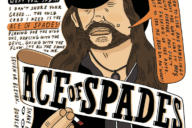FLEETWOOD MAC: RELATIONSHIPS BY EXTENSION
When you’re the one ending a long-term relationship it’s important to your sanity to keep it in your head that you’re not a bastard. Even if there’s something undeniably bastard-like about what you’re doing. You attempt to be as nice and as reasonable as you can, magnanimous even. You don’t argue about money, about the house, about who gets to keep the robot vacuum. But deep in the psyche of the non-bastard the threat of your bastardliness remains: you have to have something to hold onto.
Mine was: “At least you’re not splitting up Fleetwood Mac.”
Because when you hear about the intertwined relationships that the band have had over the years, and you hear the songs of loss and betrayal, and you hear who wrote them and who sung them, then you’re sure that one more bastardly action would have broken the band and denied us Rumours. But no one did break up Fleetwood Mac: they’re still going.
My eighteen year-old self would hate me. Fleetwood Mac were not cool: they were soft rather than hard, smooth rather than edgy, and very much Mojo rather than NME. Cool filtered what I liked. Sure I liked only what I liked, but that was picked from the list of options defined as acceptable. That’s how we all work, but somehow over the years a couple of things have happened.
One is simply that I’ve got older and moved through phases of what’s cool, picking up new things that wouldn’t have been OK in the past and not discarding anything. The other is that the acceptability window these days is gaping. In politics the way the acceptable views move around the spectrum is the theory of Overton Windows that can be pulled left or right. In music terms the windows have been converted into patio doors and then levered off with a spade‚ by the Internet and the speed of culture.
At some point I picked up Fleetwood Mac through the window. The tunes and the emotion beating away the AOR demons. Over their forty year career they’ve picked up three or four times the amount of people that can fill the largest arena in the country.
When I first started to listen to Rumours, I‚ in an ingrained patriarchal fashion‚ always assumed that Lindsey Buckingham wrote all the songs. As guitarist and singer it seemed likely, I assumed that he wrote songs about how he’d fallen out of love with a woman and then got her to sing them. ‘The bastard,’ I thought; ‘The bastard who happens to write the most glorious heartbreak songs in the world.’ But I was wrong. Stevie Nicks wrote some of them too: about how she could do without him and she was happy that way‚ and got him to play them and sing them. And Christine McVie wrote some: about how her marriage with bass player John was falling apart and she was enjoying time with the lighting director.
And Mick? Mick drummed. And started a relationship with Stevie, and did his weird eye thing. And dangled disco balls from his crotch. Go check the cover of Rumours now. Pay more attention to Mick Fleetwood’s trouser bridge than you ever have before and you’ll see two shiny Christmas baubles suspended in hope of admiration. The bastard.
Mick gets a pass, he’s the driving force that’s kept the band‚ named for him and John as original guitarist Peter Green didn’t want to be a star‚ going. Peter was afraid to be a guitar hero in the era of “Clapton is God” and left the band high and dry. He held them together during the success, and the drug years.
Lindsey did want to be a guitar hero, and he isn’t. Not that he isn’t a fantastic guitarist, he is. But there’s something in the confessional LA attitude that means he never gets there. It’s in the neediness with which he sneaks into Stevie’s spotlight when she does a very personal acoustic number. He’s still writing and has stuff to share.
I think I now know more about their relationships with each other‚ and all relationships by extension. Mick and John are dad and mum, they’ve not split up and the kids are okay. We can stop hiding on the stairs and listening to the arguments.
Words: Jon Bounds
Illustrations: Laura Tinald








